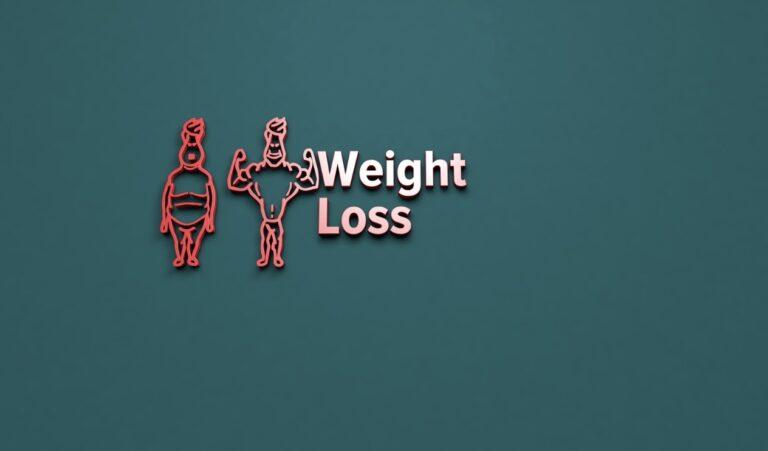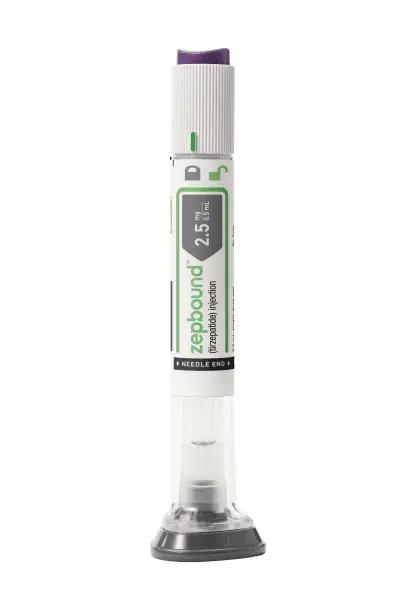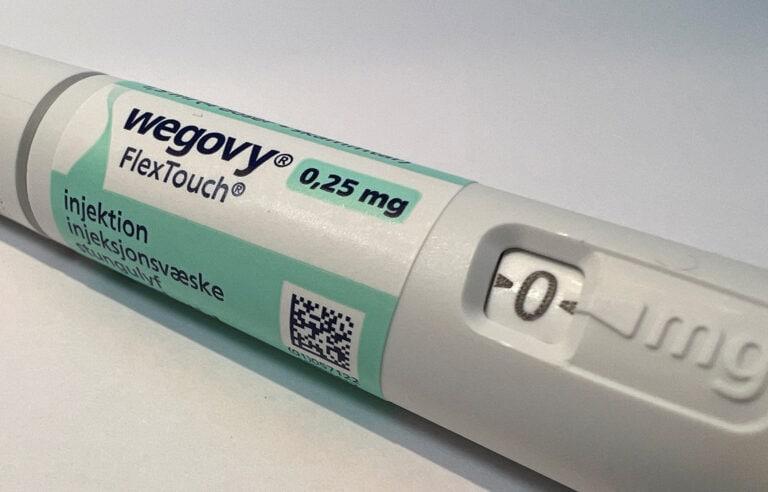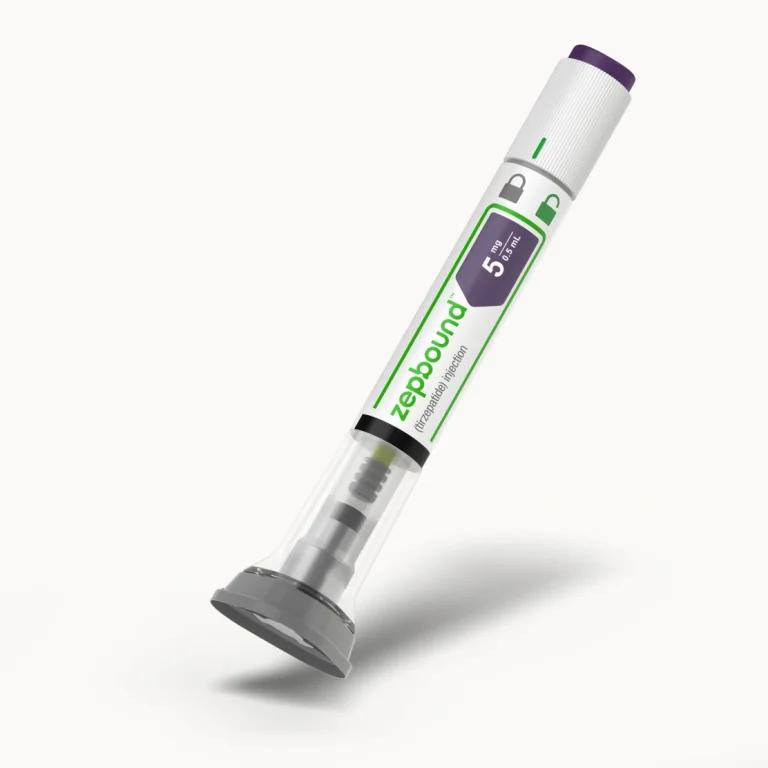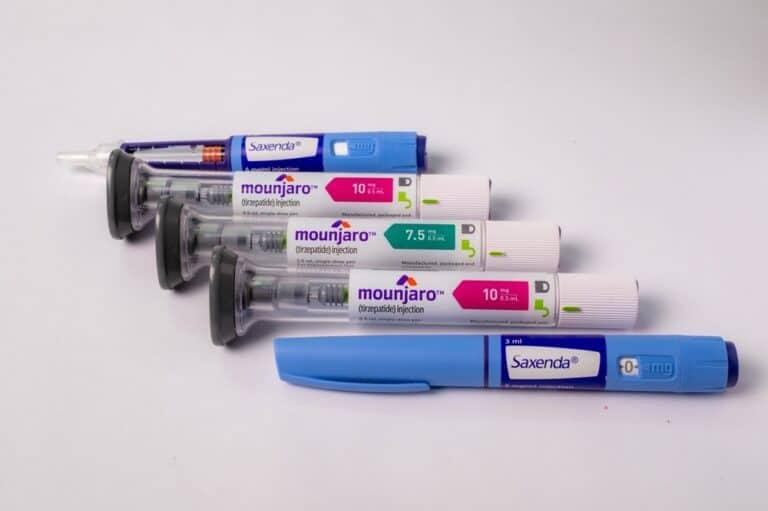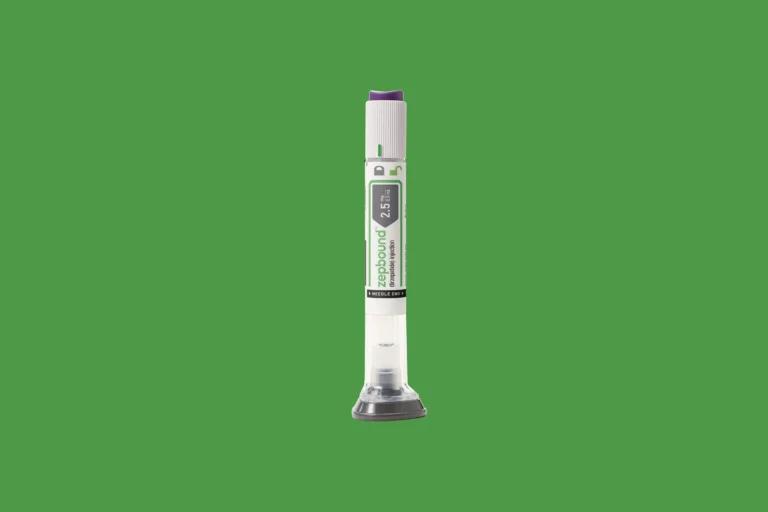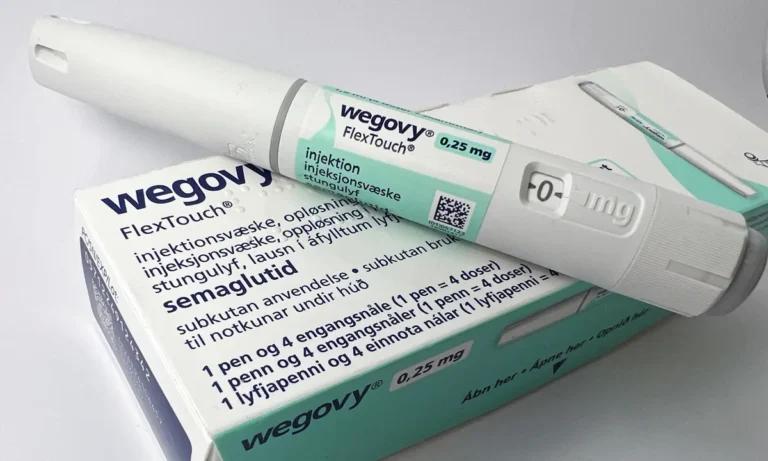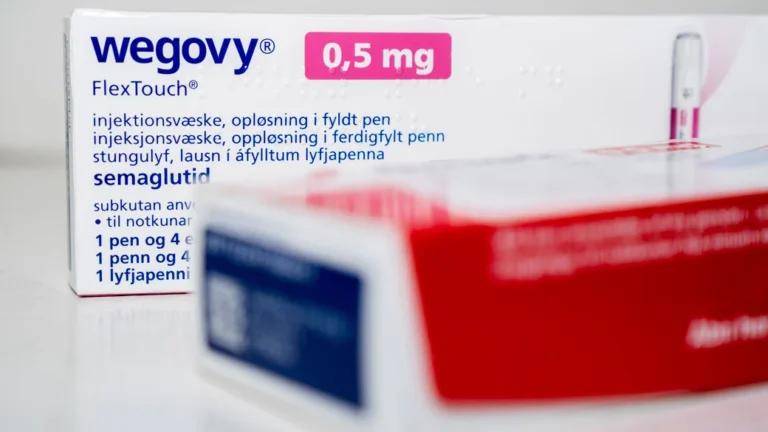Weight loss drugs have become a game-changer in the fight against obesity, with Eli Lilly’s Zepbound and Novo Nordisks Wegovy leading the charge as popular options on the market. Zepbound, a brand name for tirzepatide, is a dual-agonist medication that activates both the GLP-1 and GIP pathways, while Wegovy, underpinned by the active ingredient semaglutide, operates as a single-agonist drug focusing only on the GLP-1 pathway. With obesity being a significant health concern for many, the FDA has given the green light to Zepbound for adults battling excess weight and associated health conditions.
While both drugs are designed to assist weight management, Zepbound may offer a more pronounced effect, with some users experiencing an average weight reduction of up to 18% at a certain dosage. In comparison, both Wegovy and its counterpart, Ozempic, are implicated in promoting insulin production and fostering a sense of fullness. Such advancements in weight loss injections, including the potential for Zepbound to be more affordable, suggest a shift towards better accessibility for those with a higher body mass index (BMI) and diabetes. However, individuals should consult healthcare providers to navigate eligibility and understand the balance between the benefits and possible side effects of these treatments.
Overview of Zepbound
Zepbound stands out in the weight loss injection market for its unique dual-hormone mimicking mechanism. Unlike its counterpart Wegovy, Zepbound activates both the GIP and GLP-1 pathways, which are instrumental in controlling blood sugar and regulating appetite. This innovative approach has been clinically proven to be effective, with patients recording significant weight loss milestones:
- Clinical efficacy: In trials, participants on Zepbound lost a minimum of 5% of their body weight within the first 3 months. Over a longer period, extending up to 18 months, an average weight reduction of 26.6% was observed
- Dosage and administration: The drug is administered once weekly via subcutaneous injection, with the dosage gradually increased to target doses of 5 mg, 10 mg, or 15 mg. Patients begin with a starting dose of 2.5 mg for the initial 4 weeks, followed by incremental adjustments every 4 weeks to achieve the desired effect
The safety and application of Zepbound have been carefully outlined:
- Indications: It is prescribed for adults with obesity or excess weight who also have weight-related medical problems. The medication is part of a broader treatment plan that includes a reduced-calorie diet and increased physical activity
- Usage guidelines: Zepbound should not be combined with other tripeptide-containing products or GLP-1 receptor agonist medicines. Its safety with other weight loss products, in individuals who have had pancreatitis, or in children under 18 years of age has not been established
In addition to its weight loss benefits, Zepbound’s efficacy has been demonstrated in diverse groups:
- Weight loss in non-diabetics: A 72-week study showed an average weight loss of 15.0% (34 lbs) for the 5 mg dosage, 19.5% (44 lbs) for 10 mg, and 20.9% (48 lbs) for 15 mg
- Weight loss in diabetics: The same duration study reported an average weight loss of 12.8% (28 lbs) for the 10 mg dosage and 14.7% (33 lbs) for the 15 mg dosage in adults with diabetes
While Zepbound’s potential for weight management is promising, it is imperative to consider interactions with other medications such as sulfonylureas, insulin, birth control pills, and warfarin. Additionally, the cost of Zepbound may vary, but savings options are available through coupons and savings cards, although these may not be compatible with insurance copays.
Overview of Wegovy
Wegovy, known generically as semaglutide, is an injectable prescription medication designed for chronic weight management. It is specifically indicated for adults and children aged 12 years and older who are either obese (BMI ≥ 30) or overweight (BMI ≥ 27) with weight-related medical conditions. Here’s an overview of its main features:
- Dosage and administration: The starting dosage is 0.25 mg once a week, with the recommended maintenance dose being 2.4 mg once a week after gradual dose escalation
- Efficacy: Clinical trials have shown that Wegovy users can lose an average of 15.8% of their total body weight over a year. Additionally, a significant trial demonstrated an average weight loss of 12.4% from baseline weight over 68 weeks
- FDA approval: Wegovy received FDA approval on June 4, 2021, for long-term weight management in adults with obesity or those being overweight, marking it as a recent advancement in weight loss treatments
The safety profile of Wegovy includes several important considerations:
- Potential risks: Users should be aware of serious side effects like thyroid tumors, pancreatitis, gallbladder problems, and increased heart rate, among others
- Drug interactions: It’s crucial to inform healthcare providers of all medications taken, as Wegovy can interact with other drugs, especially those used for diabetes management.
- Use in specific populations: The safety of Wegovy in pregnant or breastfeeding women, children under 12, or individuals with a history of pancreatitis has not been established
For the best results, patients are advised to use Wegovy alongside a reduced-calorie meal plan, increased physical activity and lifestyle changes. The most common side effects include gastrointestinal issues such as nausea, diarrhea, and constipation. Wegovy is available as a pre-filled pen for weekly subcutaneous injections and should be stored in a refrigerator. It is essential to note that Wegovy should not be used with other GLP-1 receptor agonists or medications containing semaglutide.
Comparative analysis of efficacy
When assessing the efficacy of Zepbound versus Wegovy, it’s crucial to consider the clinical trial results and their mechanisms of action:
- Clinical trial outcomes: Zepbound demonstrated an average weight loss of 22.5% of body weight, with tirzepatide achieving 17.8% in comparison to Wegovy’s 12.4% for semaglutide in a head-to-head study. Separate trials have consistently shown Zepbound to have better weight reduction results than Wegovy, with non-diabetic subjects using the highest Zepbound dose (15 milligrams, once a week) losing an average of 18% of their body weight.
- Mechanism of action: Both Zepbound and Wegovy function as GLP-1 receptor agonists, which are known to regulate appetite and insulin secretion. Zepbound’s dual-agonist nature, activating both GLP-1 and GIP receptors, gives it an added advantage in suppressing appetite and aiding insulin secretion more effectively than Wegovy, which only targets the GLP-1 pathway.
- Future developments: Novo Nordisk is exploring the combination of cagrilintide with Wegovy, which could potentially enhance Wegovy’s efficacy in the weight loss competition.
These points highlight the direct comparison of the two medications’ effectiveness in clinical settings, providing an objective analysis for individuals considering weight loss injections.
Side effects and safety profiles
When considering Zepbound and Wegovy for weight loss, it’s essential to understand their side effects and safety profiles:
- Common side effects: Both medications may cause gastrointestinal issues such as nausea, diarrhea, vomiting, and constipation. Additional discomforts include abdominal pain, GERD, fatigue, injection site reactions, hypersensitivity reactions, and burping. Some patients have experienced hair loss and gastroesophageal reflux disease with these medications.
- Serious concerns and precautions: A type of thyroid tumor has been observed in animal studies with both drugs, raising concerns about the risk of medullary thyroid cancer in humans. Zepbound should not be used by individuals with a personal or family history of medullary thyroid cancer or Multiple Endocrine Neoplasia syndrome type 2. Both medications come with a boxed warning for thyroid cancer, and individuals should discuss their medical history with a healthcare provider before use.
- Financial and usage considerations: The cost of Zepbound is approximately $1,060, while Wegovy is priced around $1,349 for a four-week supply, which may impact the decision based on financial capability and insurance coverage. It is critical to consider existing medications and medical background, as these drugs should not be combined with certain other treatments, including GLP-1 receptor agonists.
It’s important to note that the long-term effectiveness and side effects of Zepbound and Wegovy are still under investigation, and their high cost could present challenges for the healthcare system. Patients must consult with healthcare professionals to determine the most suitable medication, taking into account these side effects, safety profiles, and personal health factors.
Conclusion
Through rigorous analysis and evaluation of Zepbound and Wegovy, we have uncovered the nuanced dynamics and implications that these innovative treatments offer in the realm of weight loss. Zepbound, with its dual-agonist approach, has showcased a promising edge in efficacy, potentially driving a paradigm shift in obesity treatment, while Wegovy, though slightly trailing, remains a solid contender, especially with potential future combinations enhancing its performance.
As patients and healthcare providers look towards making informed decisions regarding their path to weight management, it is paramount to consider the clinical effectiveness, side effect profile, and cost implications discussed within this comparison. While the immediate results are encouraging, it would still be wise to cautiously navigate these options, considering long-term outcomes and individual health considerations. For those ready to embark on this journey toward a healthier life, exploring the benefits of weight loss injections can be a powerful first step, and further inquiry into options like Zepbound can be pursued through your healthcare provider.
Sources
- Zepbound (tirzepatide) Injection for Adults with Obesity or Excess Weight
- Weight-Loss Prescription Medication – Wegovy® (semaglutide) Injection 2.4 mg
- Wegovy: what you need to know about the weight-loss injection – BHF – BHF
- FDA Approves New Medication for Chronic Weight Management -FDA
Medical Disclaimer
NowPatient has taken all reasonable steps to ensure that all material is factually accurate, complete, and current. However, the knowledge and experience of a qualified healthcare professional should always be sought after instead of using the information on this page. Before taking any drug, you should always speak to your doctor or another qualified healthcare provider.
The information provided here about medications is subject to change and is not meant to include all uses, precautions, warnings, directions, drug interactions, allergic reactions, or negative effects. The absence of warnings or other information for a particular medication does not imply that the medication or medication combination is appropriate for all patients or for all possible purposes.
Related Articles
How does Zepbound compare to Semaglutide in terms of effectiveness?
The effectiveness of Zepbound versus Semaglutide can vary based on individual needs. Zepbound not only aids in weight management but also addresses other weight-related health issues such as high cholesterol or type 2 diabetes. Conversely, Semaglutide or Wegovy may be more beneficial for some due to their distinct mechanisms of action.
Are there any weight loss medications similar to Wegovy?
Yes, there are medications similar to Wegovy. Saxenda is one such medication that is injected and used for long-term weight management. Another option is Qsymia, an oral medication that works by suppressing appetite and enhancing the feeling of fullness.
What side effects can be expected with Zepbound and Wegovy?
Both Wegovy and Zepbound share common side effects, which include nausea, diarrhea, vomiting, stomach pain, and constipation. These side effects are noted by the manufacturers of the drugs and can be severe enough for some patients to discontinue their use.
What sets Zepbound apart from other weight loss injections?
Zepbound is distinct due to its FDA-approved indications. While Mounjaro was approved by the FDA for diabetes treatment in 2022, Zepbound received FDA approval for weight loss in 2023, marking a key difference in their official uses.






